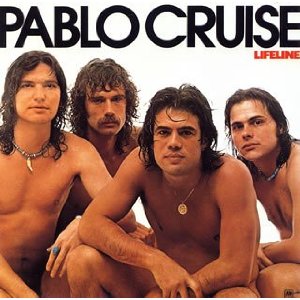Feb 23 2007 10:08 AM
Edited 6 time(s), most recently on Feb 23 2007 09:21 PM
A lot of appointments in the development staff were announced yesterday.
Minor League Field Coordinator: Luis Aguayo. (Edgar Alfonzo had been in this role the last three seasons, but is returning to manage the 'Clones.) Here's a shot of Aguayo managing in the Pioneer League in 2004, congratulating the mountainous Bobby Mosby after a tremendous home run..jpg)
Minor League Outfield and Baserunning Coordinator: Sonny Jackson. Here's Sonny back in the day as multi-tooled bespectacled young shortstop signing for juvenile Astro fans.
Binghamton Mets Manager Mako Oliveras. Mako had a cool job back in the late eighties, managing the Miami Marlins, who were an independent minor league team that competed against affiliated minor league teams. Plus, he was a mako managing marlins. Here he is managing in the Rays system.
Manager, Gulf Coast Mets: Juan Lopez. This could be anybody. Or, at least, anybody named Juan Lopez. The Mets site lists a Juan Lopez as a Mets coach in 2002-2003 ( http://newyork.mets.mlb.com/nym/history/coaches.jsp ) but the UMDB doesn't acknowledge him. I think he was the batting practice pitcher. I'm going to assume this guys is the Juan Lopez who was recentely batting coach at Kingsport. I think Jose Reyes has praised the work they did together.
Batting Coach, Gulf Coast Mets: Tom McCraw. It's a long way down to rookie ball for former Mets batting coach McCraw. He was a well respected coach during an ill-respected Mets era, 1992-1996. His claim to fame as a player was being one of the few guys who was considered to have been succesfully tutored by Ted Williams, during a one-year stop with the Senators. Interestingly, he did awful that year, but his career subsequently rebounded and he played for four more years.
Maybe Williams told him to stop swinging such a toothpick of a bat.
Trainer, Gulf Coast Mets, Adam Hindes.
Strength Coach, Gulf Coast Mets: Nick Wright.
Coach, Savannah Sang Gnats: Mike Hart.
I don't think he's the Mike Hart from the regrettable Oriole white helmet day.
I think he's the one that recently worked with the Harrisburg Senators:
If so, this'll be his 22nd year as a minor league coach or manager.
Strength Coach, Savannah Sand Gnats: Orlando Crance. Orlando was an honors student.
Coach, Dominican Mets: Luis Rojas: He's hard to isolate, as there are likely a half dozen Juis Rojases from the Dominican working at some level in major and minor league ball.
Dominican Academy Coordinator: Pablo Cruz: Pablo's was the first LP Johnny Dickshot ever acquired.
Venezuelan Academy Coordinator: Mario Gonzalez. They have a Venezuelan academy? I'm wondering if the Mets even know which Mario Gonzalez they hired.
Strength Coach, Brooklyn Cyclones: Doug Griswold. Here's his family wishing him luck with the Mets.
Strength Coach, Kingsport Mets: Jacob Henderson. I got nothing. Hopefully, the Clones will re-hire Guadalupe Jabalera from their 2006 staff.




 As they gear up for their “lucky number” seventh season in Coney Island, the Brooklyn Cyclones are bringing along one of the charms from their inaugural season.
As they gear up for their “lucky number” seventh season in Coney Island, the Brooklyn Cyclones are bringing along one of the charms from their inaugural season. 